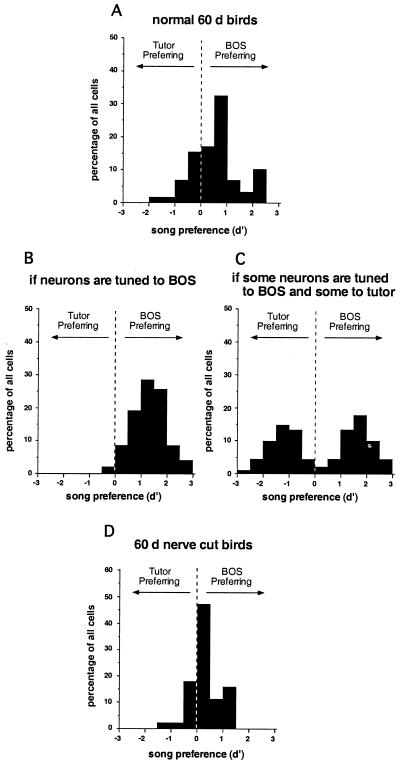Figure 3.
Preferences for BOS versus tutor song by single AF neurons. (A) Histograms show that in 60-day-old zebra finches, there is a range of preferences among LMAN neurons. The preference for each neuron is quantified with a d′ value (see refs. 18 and 25). When d′ ≥ 0.5, this indicates a strong preference for BOS over tutor song; when d′ ≤ −0.5, this indicates a strong preference for tutor song over BOS. Neurons with d′ values in between were considered to have equivalent responses to both song stimuli. (B and C) Predicted results of the manipulation of BOS. (B) If neurons with equivalent responses to BOS and tutor song are shaped by BOS during development but respond to both stimuli as a result of acoustic similarities between these two songs, this type of dually responsive neuron is not expected in birds with songs unlike their tutor song, and the distribution should reveal only BOS-tuned neurons. If both BOS and tutor song independently shape different neurons in the AFP, the distribution in birds with songs very different from their tutor songs is predicted to be bimodal, as shown by the histogram. (D) The observed distribution of song preferences from ts cut birds at 60 days of age. Neurons with equivalent responses to BOS and tutor song were maintained, even though these birds' songs did not resemble the tutor song.

